Recently, coeditors Sarah Sills, Rosalind Petchesky and Esther Farmer of Jewish Voice for Peace-NY, came together with their guests Sara Abou Rashed, Mohammed Rafik Mhawesh and Sagiv Galai, to discuss their contributions to A Land With A People and demonstrate the power of anti-Zionism.
Watch here or at the newly relaunched MR YouTube page.
In addition to the coeditors, the following contributors are featured in the online event:
Sara Abou Rashed is a poet and performer born and raised in Syria, originally from Haifa, Palestine. Since moving with her family to Columbus, Ohio in 2013, she has given a TedX talk, performed at places like the Tenement Museum, debuted her one-woman show titled “A Map of Myself,” and keynoted many events.
Mohammed Rafik Mhawesh describes himself as a “three-war-old guy,” born and raised in Gaza, “a husband and son of this land.” He is a writer, journalist, and translator, and was a trainer for several NGOs before the attack on Gaza City, in May 2021.
Sagiv Galai grew up in a West Bank settlement, moved to Queens, NY as a young teen, and has spent much of his adult life fighting against Israel’s apartheid occupation. He graduated from Bard College, where he received the New Generation Scholar award, and is currently enrolled in the University of Washington School of Law, where he is a Gates Public Service Law Scholar.
EXCERPTS FROM
A LAND WITH A PEOPLE:
Stories touch hearts, open minds, and transform our understanding of the “other”—as well as comprehension of our own roles and responsibilities. Originally a storytelling project of JVP-NYC, A Land With A People: Palestinians and Jews Confront Zionism is a collection of personal stories, history, poetry, and art which elevates rarely heard Palestinian and Jewish voices.
RADICAL IMAGINATION AND PALESTINE
From the Forward
By Noura Erakat
…We were immersed in a vibrant immigrant community—Arab, Afghan, Chinese, Filipino, Mexican, Desi (people of or from the Indian subcontinent). I stood out, not because I was the only brown kid, but because I was the only Arab in class. In fact, the reason I retained my family’s Arab tongue is because my elementary schoolteachers told my parents to speak their native language at home, and they would speak to us in English at school. I didn’t know it then, but I was lucky: this immigrant haven shielded me and allowed me to live outside the debilitating shadow of white supremacy. I never wanted to be anything but my Palestinian, Arab, Muslim self…
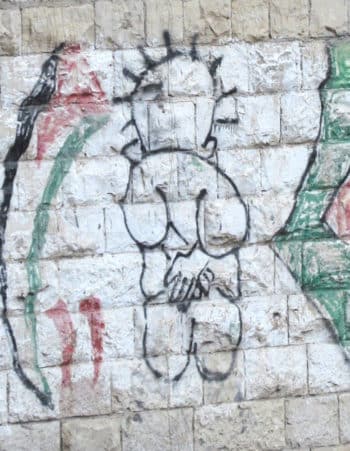
Palestinian political cartoonist and refugee Naji al-Ali, expelled from his home at age 10, created the popular symbol of resistance Handala, a 10-year-old Palestinian refugee with arms clasped fast behind his back in defiance. Handala will only turn to show his face when Palestine is free. (Photo by David Bragin)
A Land With A People is an exercise of decolonization in the form of reckoning that provides a path for others to follow….Palestinian stories are essential to decolonization, yet they have been suppressed and are often only countenanced if supported by Jewish endorsement. For example, Palestinians have been saying that Israel is an apartheid state for decades, but it wasn’t until B’tselem, the Israeli human rights organization, acknowledged this fact in early 2021 that Israeli apartheid suddenly became universally credible. In an environment where they can only be heard if a Jewish ally confirms what they have been saying, Palestinians understandably grow angry.
This is a dynamic that Palestinians constantly deal with in relationships with our Jewish friends and allies in the anti-Zionist world. It is exacerbated by liberal efforts…that insist on forms of “conflict resolution” that assume a false parity, eschewing the vast power differential between Palestinians and the Israeli government, and reducing our freedom struggle to hackneyed tolerance and diversity training.
This book is fundamentally different, tackling power head-on and charting the struggle against Zionism within the Jewish communities that Zionism purportedly serves. Its anti-Zionist Jewish stories are critical to decolonization, as well as for lighting pathways darkened by the punishing hand of imperial expansion.
May this book serve to crack the edifice of Zionist propaganda and institutional machinery that have worked to silence and punish opposition. May it lead to broader pathways toward decolonization. Until freedom for all.
ON BECOMING AN ANTI-ZIONIST FEMINIST
By Rosalind Petchesky
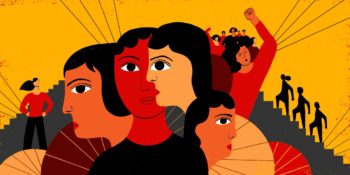
Illustration by Hanna Barczyk
…Anti-semitism is ancient and still exists. It demands our moral outrage, as do anti-Black and anti-Brown racism, Islamophobia, and all the hatreds based on who a person is, how they look or believe, or where they come from.
In 1959, a rash of antisemitic incidents—swastikas painted on synagogues and in Jewish cemeteries—had occurred across the United States. As a high school senior and the “International Citizenship Chairman” of B’nai B’rith Girls, I was charged by the national offices of both B’nai B’rith and the ADL with addressing this crisis. It never occurred to me then—and doesn’t now— that fighting antisemitism and criticizing Israeli state policies and Zionist ideology, or any ethnic nationalism, were inconsistent. Then as now, it seemed to me that equating anti-Zionism with antisemitism is a philosophical and moral fallacy. At the same time, I did learn a life-changing lesson: the first fight, against antisemitism, would win me praise from the predominantly male leaders of my white ethnic community, while the second fight—against racism in any guise, especially Zionism—would bring scorn and repudiation. For fighting this second fight, I was dismissed, not just as a race-traitor and heretic, but also as a know-nothing girl. My earliest feminist anger took root in this particular caldron of religion, race, ethnicity, and gendered power.
MY ONLY WEAPON IS MY PENCIL
By Mohammed Rafik Mhawesh
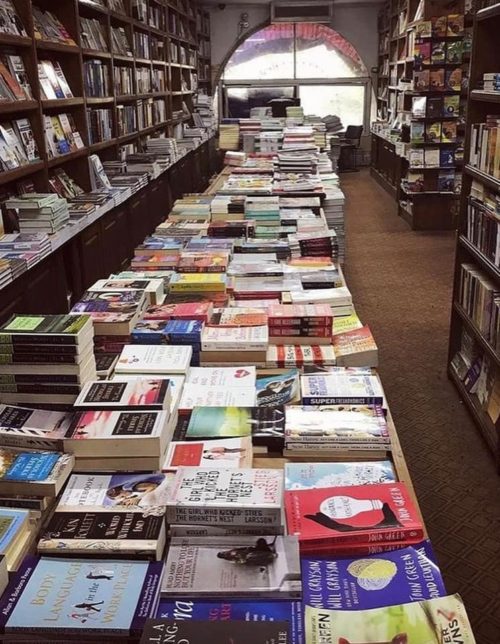
Mansour Bookshop before the Israeli Air Force bombed Gaza City in May 2021
…Ghassan and I shared painful memories of three wars. But those aren’t everything brutalized Gaza suffered from. My father and Ghassan’s father had survived two different massacres: the one in 1948 and the one in 1967. Our mothers lived through the 1967 attack but not the Nakba in 1948. Everyone has their own calculations, but we all share the same experience of horrifying, scary moments.
I miraculously survived three destructive wars within seven years only, while many of my loved ones and close friends didn’t survive, and left me heartbroken. It sounds painful to me, but my friend has a prodigious memory. He remembers almost everything. And I’m quite the opposite of him. I remember little of my life between the ages of eight and eighteen.
Friends, teachers, events—all a blur. But I remember every supernatural book and dystopian novel I read during that time and every rocket I heard and saw during the wars with an alarming vividness….like a mind notification that keeps flashbacking nightmare-like days in front of my eyes and in my head…
Walking in my city is special. There are so many faces—some young and still looking like they are about to leap into the future with excitement, some looking ancient (probably beyond their actual years) and resigned. So many approaches to religion—some women wearing a full face covering and others with their hair owing freely. So many “stations” in life—some looking fashionable and others wearing worn-out, secondhand clothes.
There are many contradictions; we are not the monolithic “Gaza Palestinian” label the world wants to attach to us….
AN ISRAELI IN NEW YORK TESTIFIES…
By Sagiv Galai
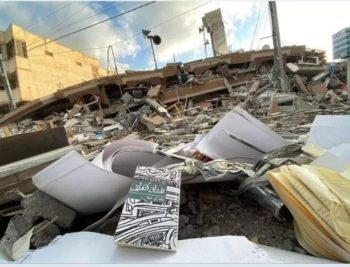
Mansour Bookshop after the Israeli Air Force bombed Gaza City, May 2021
My dad demolished Palestinian homes in the military with the engineering unit. My grandfathers fought in Israel’s wars. My mother, as a young woman, was in the Intelligence Corps. All in all, I had a very Israeli upbringing, which meant an unquestioning loyalty to Zionism. Despite moments of grace or even bliss—the moments of sunshine that can be plucked away from the more troubling memories of our childhoods —I remember living with a deep sense of disdain for the Palestinian or Arab Other…
I was raised to learn and repeat a morbid aphorism, which, to this day, I believe encapsulates the dehumanizing policies used to sustain the occupation: “a good Arab is a dead Arab.” This disturbing social cliché was proclaimed with indifference; it was an emblem of dinner conversations that turned on the topic of “politics,” the idea that the death of the Other is a logical path toward peace…I remember sitting with my friends, trying to compare which of our dads inflicted more pain upon the Other; which was more elite; which was part of the more violent operations; which father killed more of “them.”
….Today, I see the impact such inculcation has on those I grew up with. I see the tantalizing racism that binds the political imagination and hearts of the young and the old. I see a nation built for sustaining its powerful position, to remain on top of the Palestinian people with our studded boots pressing hard on their dignity.
I wish I could point to a moment of clarity, to an abrupt apotheosis that liberated my tainted young morality, but my transition from Zionism to Humanism was a gradual one…
WE ARE PALESTINIANS, AFTER ALL
By Sara Abou Rashed
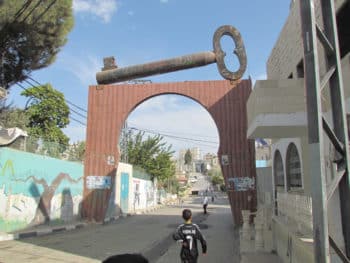
Image: Key of Return, a widespread symbol for the Palestinian right to return, sits atop the entrance gate to Aida refugee camp in Bethlehem. (Photo by David Bragin.)
…We’re not really Syrian, though we were born there. They told us that even at schools, our UNRWA schools. They also told us education is the only weapon, the only way we can dream of ever having a homeland. So we studied. And studied. And studied. By middle school, every one of my classmates had vowed to be the most successful they could be, whatever that meant—not for themselves but for us all, for our people, for our Palestine that we willed to die for but never knew….
It’s been six years since we left Syria. Columbus, Ohio, has been the place we’re trying to make home, knowing well that it may never be. This is what it means to be Palestinian: never where you belong, always searching. I started high school here in the United States with absolutely no English, and now I’ve become a poet. Perhaps language is the only way I’ve learned to mourn what’s eternally lost to me, the security of being somewhere familiar.
Being a foreigner means constantly being asked questions: good questions, bad questions, stupid questions, clarifying questions, offensive questions, unaskable questions, unanswerable questions. My favorite was during an interview for a local paper. The journalist asked me, “Where do you think you live?” It almost made me laugh, how rhetorical it sounded. Really, what he was wondering is, Do I think I live in the America everyone around me lives in?
“Of course not,” I answered. “I live in a small Palestine, inside a smaller Syria, in a big and wide America.”
ZIONISTS LOVE ISRAEL BUT THEY DON’T LOVE JEWS
By Esther Farmer
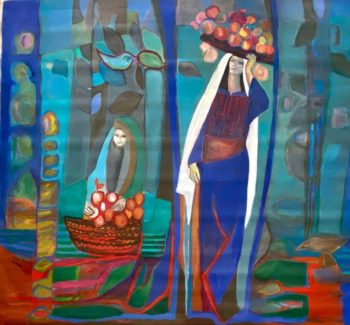
Image by Juhaina-Habibi-Kandalaft, of Palestine
…I am a Palestinian Jew. My father was born in Hebron, Palestine. His father, my grandfather, was a Turkish Jew who went to Palestine to avoid serving in the Turkish army. Unfortunately, Palestine was a Turkish “protectorate” and he was drafted into the army anyway. He did not believe in war, so his only choice was to emigrate to America.
My grandmother had always lived in Palestine; her father was a pharmacist/herbalist. His customers were both Muslims and Jews. At the time Muslims, Christians, and Jews considered themselves and were considered by everyone to be Palestinian.
When my grandparents and my father emigrated to America in the 1920s, they spoke Yiddish and Arabic. Yiddish was a bit of a family mystery since it has never been associated with the Middle East. Also, Yiddish was the language of the poor Jew, and it was not particularly encouraged after Israel was created. That has always seemed ironic to me, given that Israel was supposed to be about supporting Jews and Jewish culture. Yet the Zionist elites were willing to sacrifice a vibrant and alive language, along with a progressive cultural history with which the Yiddish language was associated, in favor of the scholarly Hebrew that, when I was growing up, was not the spoken language of most Jews.
My grandmother used to always say that Jews had no problems with Muslims until the British got involved. She was not a Zionist when she came to New York….
More from coeditors Rosalind Petchesky and Esther Farmer
A HISTORY
ZIONISM’S TWILIGHT —
COLONIAL DREAMS,
RACIST NIGHTMARES
LIBERATED FUTURES
By Rosalind Petchesky
…Like all racisms, [Zionism] is double-sided, facing both outward toward its “others” and inward toward its own. Its early alignment with European assumptions about Western and white superiority produced, and was based on, the oppression and exclusion of Palestinian Arabs, North Africans, and Muslims, while its equation of Jewishness with allegiance to an exclusively Jewish Israeli state has entailed efforts to racialize, whiten, and nationalize Jews. This last has edged perilously toward antisemitism by internalizing stereotypes of Jews as a “race,” aliens in any location but the Israeli homeland. To be an anti-Zionist Jew thus invites the labels not only of “self-hating” but also of traitor.
Those who berate Zionism’s critics — and undoubtedly will target this book — often complain we are unfairly “singling out” Israel. Quite the contrary is true. A main purpose of A Land With A People, and of this historical introduction, is to show how Zionism is of a piece with many other cases of settler colonialism and racism. The point is to see how Zionism is not exceptional or deserving of exoneration—and for all of us, as Jews and Palestinians, to grieve and denounce its willing participation in the wrongs of colonialism and apartheid that have afflicted most settler- and post-colonial societies. What is exceptional is Palestinians’ refusal to give up.
WHY TELL THESE STORIES?
By Esther Farmer
…This is not a pretty story; it is painful and difficult. In fact, it is so difficult that it cannot be normalized. We cannot dialogue our way out of this story by bringing people together to discuss it in ways that pretend that both sides are equal….
The Israeli narrative even denies that there was a country called Palestine! Palestinians cannot show their flag. Their foods, their language, their histories, their towns, their commerce, and their culture have been systematically erased.
It is also important to note that the history of Jewish opposition to Zionism and to the creation of Israel was also erased. Before the Jewish holocaust there was substantial opposition among Jews to Zionism.
…at this very moment, the Israeli lobby and the US government are pushing the narrative that being an anti-Zionist is the same as being antisemitic. The stories in this book vividly challenge that dangerous notion. In fact, many of our Jewish storytellers assert that they are anti-Zionist not in spite of their Jewishness but because of their Jewishness….
To read the rest, get your copy here
Or click on the book cover below
The coeditors:
Esther Farmer is a Palestinian Jew and native Brooklynite passionate about using theater as a tool for community development. She is former Ombudsman and Manager for the New York City Housing Authority, former United Nations representative for the International Association for Community Development and was an original founder of Teamsters for a Democratic Union-New York. As part of her activism in the Alliance for Puerto Rican Education and Empowerment, she helped produce the film, Making the Impossible Possible. She is also a JVP-National artist involved with producing storytelling workshops around the country, and the author of several articles published by Routledge and Taylor and Francis, on theater, performance, and social change. She is a Jewish Voice for Peace-NYC chapter leader and the director and playwright of “Wrestling with Zionism.”
Rosalind Pollack Petchesky (she/her) is Distinguished Professor Emerita of Political Science at City University of New York, and a recipient of the MacArthur Fellowship and, more recently the Charles A. McCoy Career Achievement Award. Dr. Petchesky’s first book, Abortion and Woman’s Choice, cited by both the U.S. and Canadian Supreme Courts, won the Joan Kelly Memorial Prize of the American Historical Association. She is the author of many published books and articles, translated into numerous languages, on gender, sexual, and reproductive justice; transnational feminisms; and the politics of the body. Professor Petchesky travels frequently to visit her beloved grandchildren in Texas, but lives in New York City, where she is Jewish Voice for Peace-NYC chapter leader, a classical pianist, and a kickboxer.
Sarah Sills is a life-long artist-activist, graphic designer, organizer, and event producer. Over the years she co-led a Teamsters trade union delegation to China, organized clerical workers at Columbia University, raised money for Salvadoran women’s cooperatives during the war, and worked at a pro-Aristide Haitian newspaper. In addition to being a JVP-NYC chapter leader, she is currently involved with producing storytelling workshops and the Wrestling with Zionism Readers Theater.
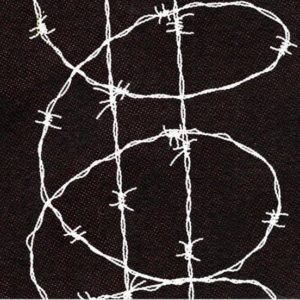
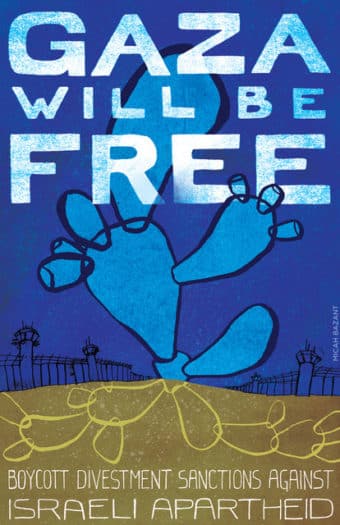
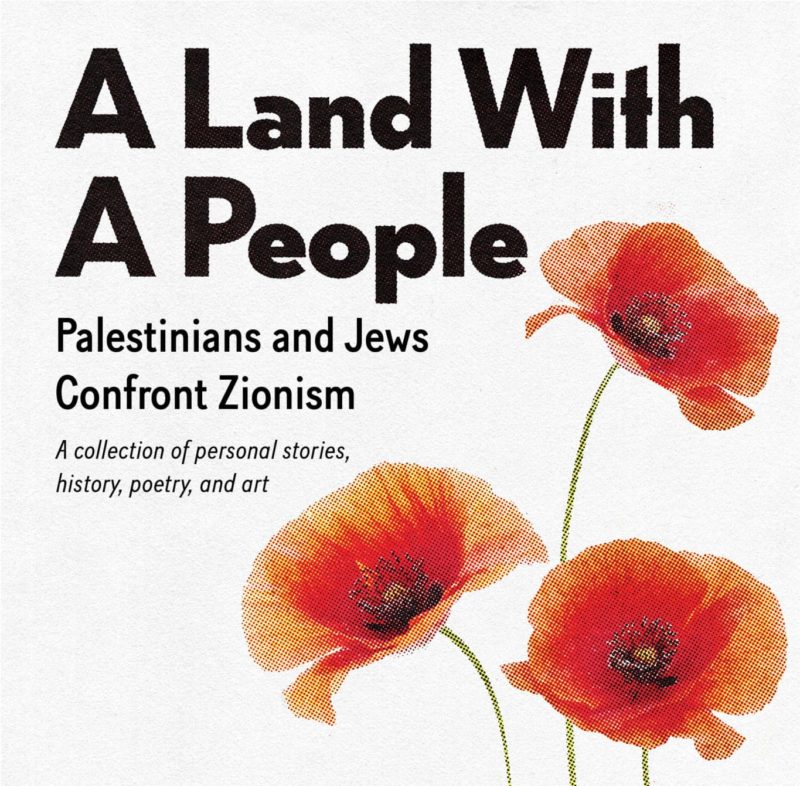
Comments are closed.